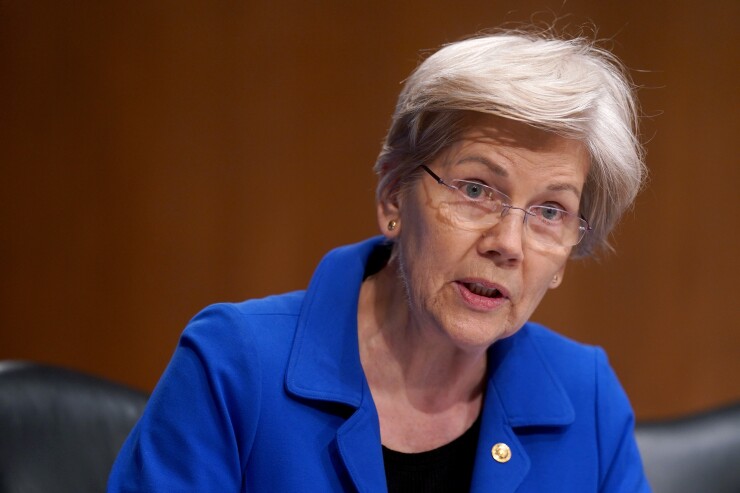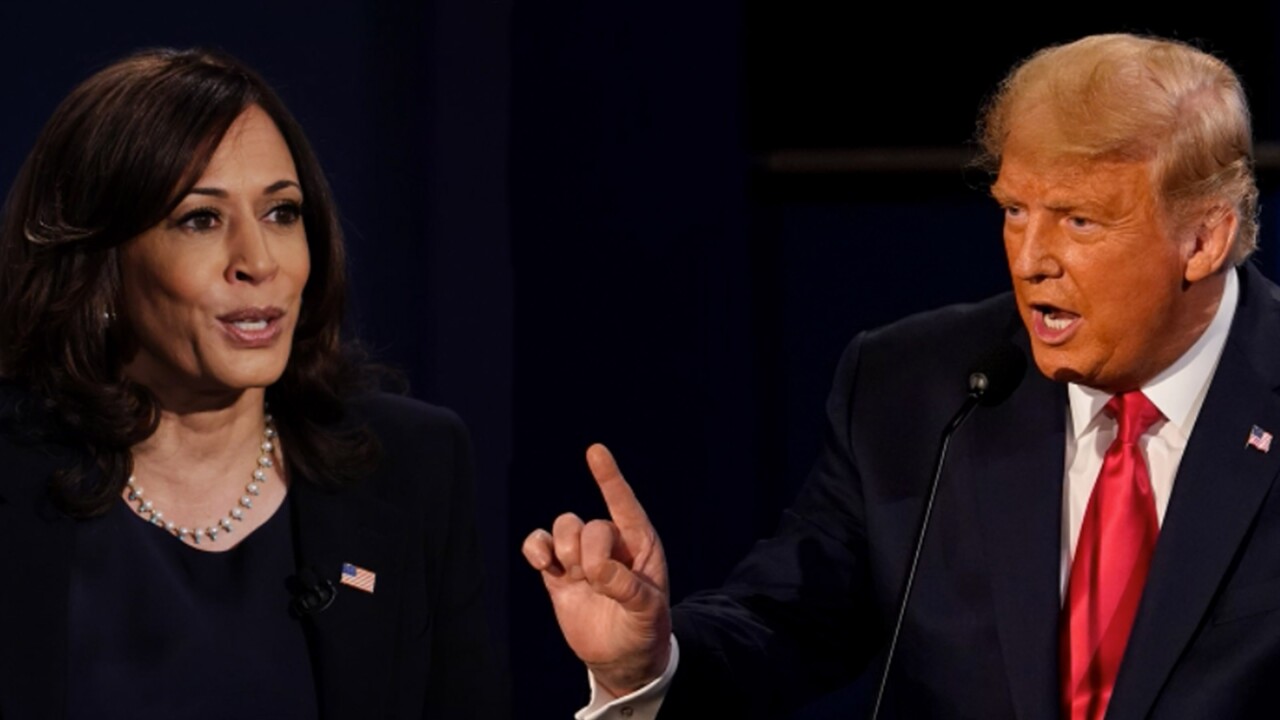
This is the second in a series of articles on the impact of the presidential election on financial services. Here's where to read
Crypto's political war chest has
It's an enormous amount of growth and power for a still fledgling industry. Since the 2010 Citizens United ruling by the Supreme Court, crypto spending comes second in total election spending over time, falling short of only fossil fuel corporations, the report said.
"We've never seen anything like this before, and I think it's pretty amazing to take a step back and say this is about a 15-year-old industry and we've come such a long way," said Patrick Kirby, policy counsel at the Crypto Council for Innovation.
The industry's targets — candidates it either supports or opposes — are strategic.
One of the aims of the spending is to ensure that, when the dust settles from the 2024 election cycle, there are regulators and lawmakers in Washington that are, if not sympathetic to the industry, ready to consider crypto interests.
Many of those positions overlap with those of the prudential bank regulators, and those appointees will make policies that touch the business of banking, experts say. And with the amount the industry is spending, they are likely to have at least some success, which will influence the shape of bank regulation in the coming years.
"It kind of boggles the mind," said Hilary Allen, a bank law professor at American University.
American Banker's coverage of the 2024 elections centers on the impacts that will be felt throughout the banking industry from the next presidential administration and Congress — from regulatory approaches to the economy to the advance of technology like artificial intelligence.
Show me the money
Crypto's political spending has, in a large part, gone through a pro-crypto political action committee called Fairshake.
The super PAC has spent roughly $93.8 million this election cycle and has raised about $203 million. Its top donors include Coinbase, which has contributed about $50 million to the 2024 elections; Ripple, which has spent $49 million; and venture capital firm Andreesen Horowitz, which has contributed $47 million.
Fairshake has spent money mostly on congressional races. It spent about $10 million to topple Rep. Katie Porter, D-Calif., a consumer protection lawyer and crypto skeptic, in the Democratic primary for one of the state's U.S. Senate seats.
And one of Fairshake's associated super PACs, Defend American Jobs, said it would spend $12 million to defeat Senate Banking Committee Chairman Sen. Sherrod Brown, D-Ohio.
"A lot of money is being poured into whoever they think will help them," said Todd Baker, managing principal at Broadmoor Consulting and a senior fellow at Columbia University.
"I think they're less focused on the presidential campaign than they are on trying to influence the congressional set up by getting IOUs from congressional and senatorial candidates that can be used around the election to push through some of these bills around regularizing crypto and defanging the [Securities and Exchange Commission]," Baker said.
Allen said most of the spending, however, is not going toward advertisements or other media that explicitly backs crypto as an issue. Instead, the ads that the industry groups are creating mostly focus on kitchen-table issues like inflation.
"What's particularly interesting is the money is not going to fund ads that mention crypto," she said. "They are supporting pro-crypto candidates and they're targeting candidates who are not supporting crypto, but none of the ads actually mention crypto."
Allen said this is because crypto, as an issue, isn't salient for most voters.
"And the crypto industry is aware of that to the point where their PAC money is being used to run on sort of bread-and-butter issues that people care about," she said. "They're not talking about crypto because this is such a niche, niche issue."
What does it mean for banks?
While voters may overlook crypto as an election issue, putting crypto-minded regulators in Washington could shift many bank policy conversations in the coming years.
"There is a perception at banks that the banking regulators don't like crypto and therefore they derisk by denying simple bank accounts to the crypto industry," said Kristin Smith, CEO of the Blockchain Association. "And so I think coming to leadership at the top that says, 'Hey, like it's OK, we should be banking these businesses,' is important."
Smith said the crypto industry's interest in political spending this election is to influence Congress to pass legislation that would set up a regulatory framework for digital assets and to put in regulators who would be "willing to have an open dialog with the industry."
And while some of the biggest spending has targeted Democratic lawmakers, the industry is also spending in favor of Democratic candidates who might be open to

"The problem we've had is that, we've had Elizabeth Warren in the Senate and Gary Gensler at the SEC on the Democratic side, that it's been so hostile that it is often perceived that Republicans are more friendly," Smith said. "But the truth is, we have some really strong Democratic allies as well. And so I think as we get into the next Congress, we'll have more Democrats involved."
Vice President Kamala Harris also "provides an opportunity for a reset," Smith said.
"This is kind of an opportunity for, like, a fresh set of thinking. We're very excited about that. You know, Donald Trump used to be pretty anti-crypto, and he's really come around."
Regardless, if the crypto industry has its way, there'll be more support for industry-friendly regulators and legislation come 2025.
"Whatever happens, there's going to be some congressional people who owe crypto, and so I can't imagine at all that money is going to be spent with no results," Baker said. "There's some possibility that that will tip some of the numbers."
Specifically, the crypto industry is interested in a market structure bill. Kirby said that the industry broadly supports the work done this year
The House bill included a provision that would have nullified the SEC's staff accounting bulletin 121, which bankers complained would undercut their ability to custody crypto assets.
The crypto industry is also interested in
"Banks and crypto companies work together quite a bit, especially when you think of some of the stablecoin products that are out there," he said.
But ultimately, the biggest impact might be how the crypto industry targets Senate races, particularly those on the Senate Banking Committee where nominations to the Federal Reserve, the Office of the Comptroller of the Currency and the Federal Deposit Insurance Corp., must be approved.
"Having folks who are familiar with this $2 trillion market, it behooves the regulators to be familiar with some of the contours, some of the different applications, how they interact with some of the traditional rails we see in the finance sector," Kirby said. "And I think having regulators better understand crypto, it helps, because, to my point earlier, it's not going away, right?"






